Here Were Microsoft’s Top Paid Executives In 2021
Microsoft saw $168.1 billion in sales for fiscal year 2021 as it hailed the results of “another year of historic financial performance.”
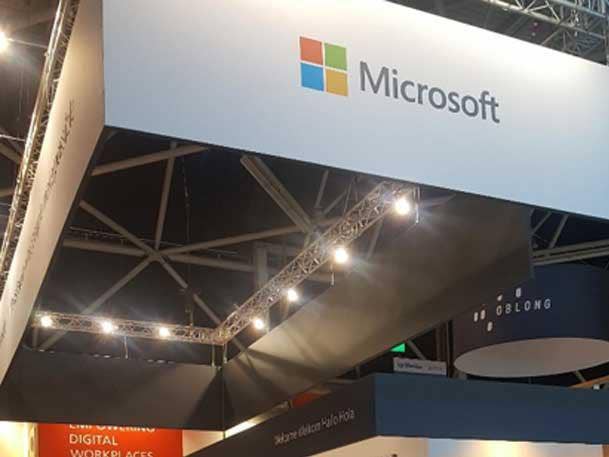
Microsoft CEO and Chairman Satya Nadella’s total compensation for fiscal year 2021 grew to nearly $50 million as the tech behemoth‘s revenue ballooned in the face of the pandemic, according to a recent filing from the tech giant with the U.S. Securities and Exchange Commission. But Nadella isn’t the only Microsoft executive to get a pay bump.
Redmond, Wash.-based Microsoft disclosed the pay packages of its top five executives last week. In the filings, Microsoft called its fiscal year 2021, which ended June 30, “another year of historic financial performance.”
Microsoft saw $168.1 billion in sales for fiscal year 2021, an increase of 18 percent year over year. Profits also rose 38 percent from the year before to $61.3 billion.
Other highlights: Commercial cloud revenue increased 34 percent to $69.1 billion. Dynamics products and cloud services revenue increased 25 percent. And Windows Commercial products and cloud services revenue increased 14 percent, according to Microsoft.
[RELATED: As Microsoft Prospers, Here's What 5 Top Execs Are Paid]
The filings highlight business milestones including Microsoft’s security business surpassing $10 billion in annual revenue, LinkedIn’s annual revenues exceeding $10 billion, Dynamics seeing four consecutive quarters of accelerating revenue and nearly 250 million monthly active users on Teams. They also note the potential of recently launched Windows 365, Windows 11 and the pending $19.7 billion acquisition of Nuance Communications.
Also revealed in the filing is the nomination of a new board member: Carlos Rodriguez, the 57-year-old president and CEO of human resources software provider Automatic Data Processing.
Here’s a rundown of the Microsoft executives from lowest to highest compensation.
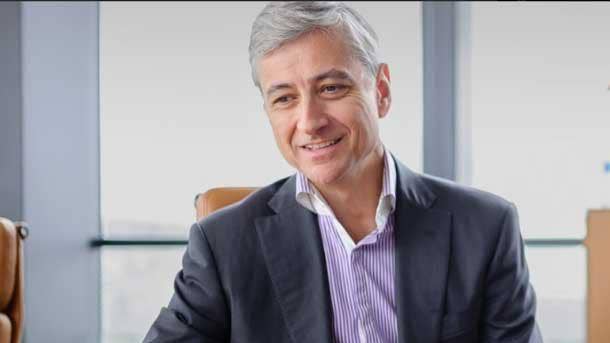
5. Jean-Philippe Courtois
Jean-Philippe Courtois, a Microsoft executive vice president and former president of global sales, marketing and operations, received total compensation of about $16.8 million in fiscal year 2021, a 21 percent increase year over year.
He received a salary of about $932,000, a 20 percent increase year over year. His stock awards were valued at about $12.1 million, a 16 percent increase.
Courtois received non-equity incentive plan compensation of about $3.7 million, a 40 percent increase year over year. Microsoft gave Courtois about $66,000 in other compensation. That other compensation includes profit sharing mandated by French law of about $35,000, a car allowance that includes business and personal use of about $20,000, a $298 allowance that was granted to all work-from-home employees in France during the COVID-19 pandemic and a tax assistance allowance of $1,900.
Some of Courtois’ key results during the fiscal year include enhancing “Microsoft’s position as not only a technology provider but a strategic partner for global customers across all industries, helping to sustain, reinvent, and improve business models as digital transformation was accelerated.”
He also “built on Microsoft’s strength as the most trusted Cloud and AI enabler to customers, governments, and communities across the globe by collaborating with them to accelerate the opportunities in those industries that are critical to a country’s economic growth” and “championed efforts to elevate the role of the manager, especially through the remote pandemic environment, setting the stage to serve as executive sponsor of The Forum for Partners and Manager Coaching to promote our leadership principles and manager framework,” according to Microsoft.
In May, Courtois and Microsoft executive Judson Althoff changed their roles. Althoff now heads a “unified” worldwide commercial group for the cloud technologies giant. The global commercial organization will bring together Microsoft’s global sales and marketing organization, previously run by Courtois, and the company’s worldwide commercial business, previously run by Althoff.
Courtois, meanwhile, changed his title from executive vice president and president of Microsoft global sales, marketing and operations, to the new title of executive vice president of national transformation partnerships.
Courtois will take on a new role “engaging more directly in cloud and AI technology, leading our national transformation partnerships around the globe, providing continued leadership to members of our global team, and in the pursuit of philanthropic interests aligned with both the company, and his personal interests,” according to Microsoft.
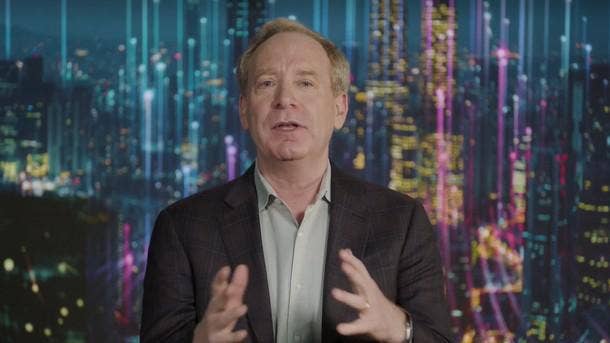
4. Bradford L. Smith
Brad Smith, Microsoft’s president and chief legal officer, received about $20.5 million in total compensation in fiscal year 2021, a 23 percent increase year over year. Smith’s title changed to president and vice chairman on Sept. 14, according to Microsoft.
He received a salary of about $943,000, a 10 percent increase year over year. He received stock awards worth about $15.1 million, a 22 percent increase year over year. That stock value includes an on-hire award value of $17.5 million.
Microsoft gave Smith non-equity Incentive Plan compensation worth about $4.3 million, a 31 percent increase year over year. Smith received about $110,000 in other compensation.
Among his key results for the fiscal year, Smith “brought clear focus on the criticality of security, including effective public outreach to governments and testimony before multiple congressional committees” and “took additional action to disrupt nation-state and criminal activity, advance international norms, and create an internal geo-political intelligence capability,” according to Microsoft.
He also “surpassed Global Skills Initiative goal to bring digital skills to 25 million people worldwide and doubled down on efforts to support a more inclusive skills-based labor market, including extended free content and certification offerings to the end of 2021” and “introduced a comprehensive annual regulatory review to further strengthen compliance with global regulation in six fields – privacy, cybersecurity, national security, lawful access, digital safety, and responsible AI.”
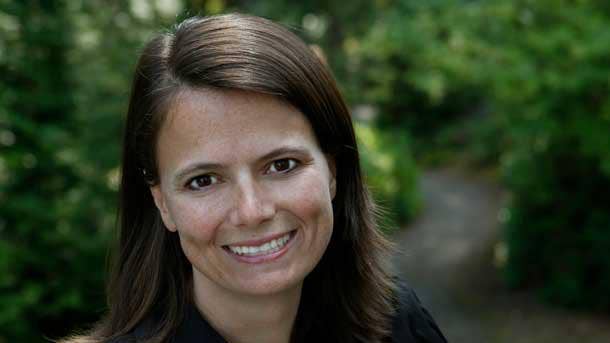
3. Amy E. Hood
Amy Hood, a Microsoft executive vice president and the company’s chief financial officer, received total compensation of about $23.5 million in fiscal year 2021. That’s a 20 percent increase year over year.
She received about $996,000 in salary and about $17.9 million in stock awards, both 21 percent increases year over year.
Microsoft gave Hood about $4.5 million in non-equity incentive plan compensation, 22 percent more year over year. Hood received about $62,000 in other compensation, mostly in the form of charitable gifts.
Some of Hood’s key results during the fiscal year include “reinvigorating Windows as an important revenue driver, accelerating the pivot to ‘digital first’ in light of changing market conditions, solidifying our commercial strategy, and refining our consumer strategy,” according to Microsoft.
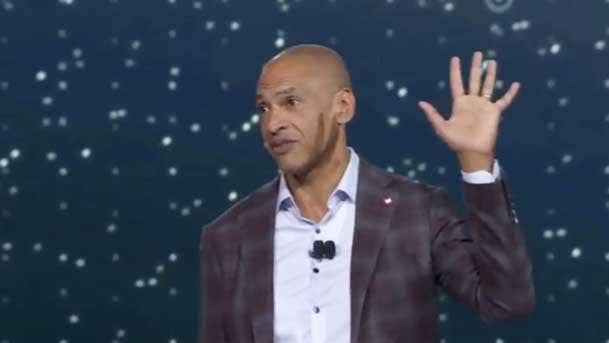
2. Christopher D. Young
Christopher Young, Microsoft’s executive vice president of business development, strategy and ventures, received about $28.5 million in total compensation in fiscal year 2021. Microsoft hired the former McAfee CEO in November.
Young received a salary of about $542,000. He also received a $3.5 million on-hire cash bonus.
Microsoft gave Young about $22.6 million in stock awards and $1.8 million in non-equity incentive plan compensation. He received about $70,000 in other compensation, most of the money in charitable gifts.
Among Young’s key results for the fiscal year, he “implemented further rigor into the evaluation and execution of strategic partnership opportunities, including alliances, venture investments, and joint ventures aligned with our corporate strategy” and “expanded existing global partnerships while uncovering and unblocking new growth opportunities.”
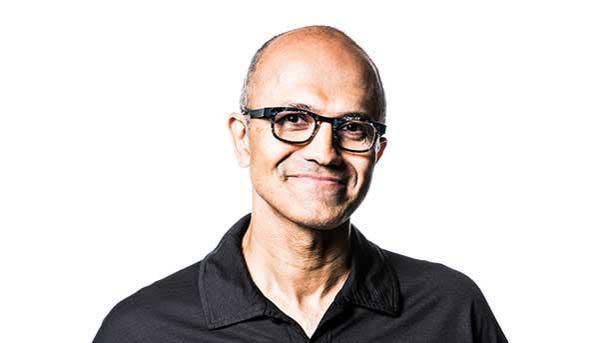
1. Satya Nadella
Microsoft CEO and Chairman Satya Nadella’s total compensation for fiscal year 2021 was $49.86 million, a 12 percent increase year over year, according to Microsoft. The ratio of his annual total compensation to the annual total compensation of the median employee was 282 to 1.
His base pay of $2.5 million remained the same from 2020. His stock awards grew to a value of $33 million, an 8 percent increase year over year.
His non-equity incentive plan compensation -- which includes annual cash incentives based on financial and operational performance -- was $14.2 million, a 30 percent increase year over year.
Nadella, 54, also received $109,750 in other compensation, most of which were in the category of charitable gifts, which includes matching charitable contributions under Microsoft’s corporate giving program.
In June, Microsoft’s board named Nadella chairman, taking over for former Symantec CEO John Thompson. Thompson became lead independent director, a role he held previously from 2012 to 2014. Nadella does not receive additional pay for serving as a director or chairman.